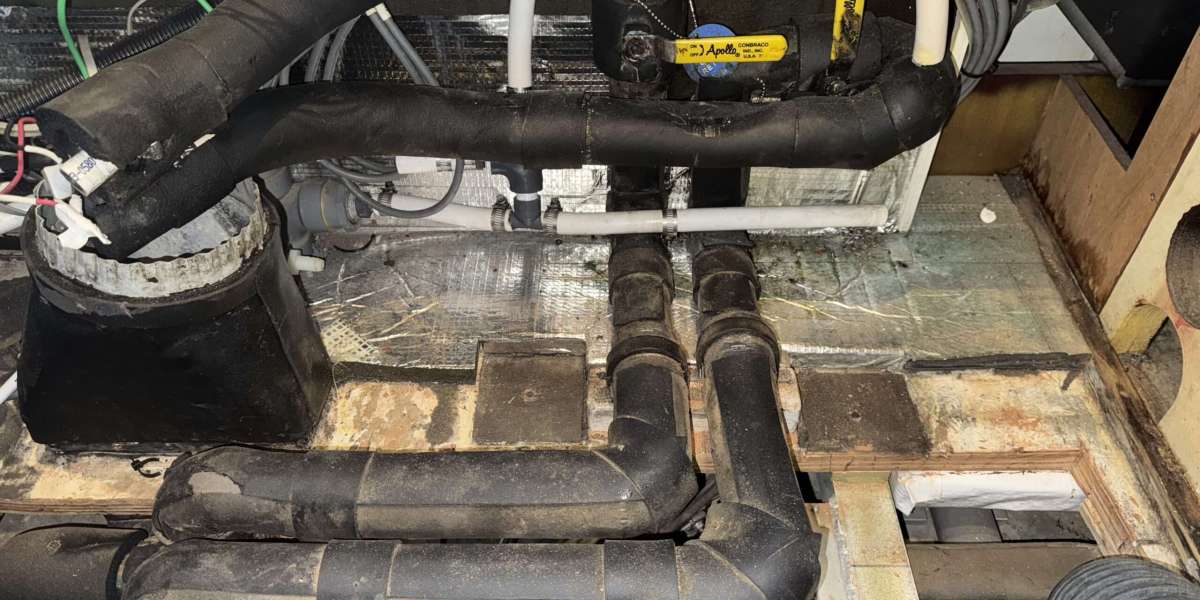Owning a boat is a dream come true for many enthusiasts, but along with the excitement comes the challenge of maintaining comfort and tranquility on the water. One common issue boat owners face is unwanted noise. Whether it’s the constant hum of the engine, the sound of waves hitting the hull, or vibrations from the machinery, boat noise can significantly diminish your boating experience. If you want to enjoy your time on the water without the disturbances of intrusive sounds, implementing marine soundproofing is the key.
This comprehensive guide will walk you through the best strategies for reducing noise on your boat, focusing on marine soundproofing and marine noise insulation. By understanding the science behind noise reduction and taking proactive measures, you can enjoy a much quieter and more peaceful boating experience.
Understanding Marine Soundproofing: Why Is It Necessary?
Marine soundproofing isn’t just about reducing engine noise or muffling the sounds of the water. It's about creating a more comfortable and relaxing environment on your boat, especially if you spend extended periods of time on the water. Excessive noise not only affects your enjoyment but can also cause stress and fatigue, affecting your overall boating experience.
The goal of marine soundproofing is to create an effective barrier that prevents sound from traveling into the interior spaces of the boat. This includes insulating the engine compartment, reducing vibrations, and sealing off areas where sound can leak through. Marine noise insulation can make your time on the water significantly quieter, which means you can have conversations, relax, or even sleep without interference.
How Marine Noise Insulation Works
Marine noise insulation works by either absorbing or blocking sound waves, preventing them from reaching the inside of your cabin or other quiet areas of the boat. There are two primary forms of soundproofing: sound absorption and vibration isolation.
Sound Absorption
This involves using materials that absorb sound waves and convert them into heat energy, which reduces the overall noise levels. Materials such as foam panels, fiberglass, and acoustic mats are commonly used for this purpose.Vibration Isolation
Boat engines and machinery generate vibrations that can amplify noise. Vibration isolation materials, like rubber mounts or vibration-dampening pads, prevent the vibrations from being transferred to the boat’s structure, which helps reduce noise.
Top Tips for Effective Marine Soundproofing
Now that you understand the basics of marine noise insulation, let's dive into some actionable tips and techniques you can use to reduce noise on your boat.
1. Invest in Quality Marine Soundproofing Materials
Not all materials are created equal when it comes to soundproofing. Look for specialized products designed for marine environments. Marine-grade soundproofing materials, such as acoustic foam panels or mass-loaded vinyl (MLV), are ideal for boats. These materials are durable, water-resistant, and specifically engineered to withstand the harsh conditions of the marine environment.
For added effectiveness, you can use a combination of materials. For instance, installing an MLV layer along with foam panels can help create a multi-layer soundproofing system that absorbs both airborne noise and vibrations.
2. Seal Gaps and Cracks
One of the simplest ways to reduce noise is to seal any gaps or cracks in your boat. These gaps allow sound to travel more easily into the cabin, making your boat noisier than it needs to be. Focus on areas such as windows, doors, and seams around the hull where noise may leak through.
Invest in marine-grade weatherstripping, silicone seals, or rubber gaskets to close off any openings. These materials are designed to withstand the marine environment and will effectively reduce unwanted noise infiltration.
3. Use Engine Insulation
The engine compartment is one of the main culprits of boat noise. Installing specialized engine soundproofing insulation can greatly reduce the amount of noise that escapes from this area. Materials like engine room insulation blankets, soundproofing mats, and acoustic foam can be installed around the engine to absorb noise and vibrations before they travel through the boat.
Additionally, consider engine mounts designed to isolate vibrations. These mounts prevent the vibrations from traveling to the boat’s structure, significantly reducing engine noise and improving the overall comfort of your boat.
4. Opt for Soundproofed Flooring
Floors are another major contributor to the transmission of noise, especially if your boat has hard surfaces like fiberglass or wood. To mitigate this, you can install soundproof flooring. Materials like marine carpet or rubber mats can be laid down to absorb sound and reduce vibrations.
For maximum effect, choose flooring that also serves as a vibration damper, as this will help to reduce both the sound and the shaking that can make your boat feel less comfortable. Proper insulation beneath the flooring is also essential for soundproofing the interior.
5. Add Acoustic Panels in Key Areas
For cabins or other quiet spaces, acoustic panels can be highly effective at absorbing sound and improving overall sound quality. These panels can be installed on walls or ceilings to reduce the impact of external noises, including engine sounds, wind, and wave noise.
Acoustic panels come in a range of materials, such as foam, fabric-wrapped fiberglass, and polyester. Be sure to choose materials that can handle moisture and won’t deteriorate over time.
Why Investing in Marine Noise Insulation Pays Off
The value of reducing noise on your boat goes beyond comfort. Lowering the noise levels can significantly improve the quality of life on board, whether you're on a short day trip or a long weekend getaway. Here are some reasons why marine soundproofing is a worthwhile investment:
Enhanced Comfort: A quieter boat creates a more relaxing and enjoyable atmosphere. This is especially true for overnight trips where sleep is important.
Reduced Fatigue: High noise levels can lead to fatigue, as your body works harder to process the sounds. By insulating the boat, you reduce this strain.
Better Communication: Less noise means better communication with fellow passengers, which is essential for safety and coordination.
Higher Resale Value: Boats with soundproofing features are often more attractive to buyers, giving you an edge if you ever decide to sell.
Final Thoughts
Marine soundproofing and noise insulation are essential for creating a peaceful and comfortable environment on your boat. By implementing a few simple strategies, such as sealing gaps, investing in the right materials, and insulating the engine compartment, you can significantly reduce unwanted noise and vibrations. Not only does this enhance your enjoyment, but it also adds to the longevity and comfort of your boating experience.
If you're serious about upgrading your boat’s noise insulation, make sure to invest in quality products that are designed specifically for the marine environment. With a little effort and the right materials, you can transform your boat into a quieter, more enjoyable space for all your adventures on the water.












